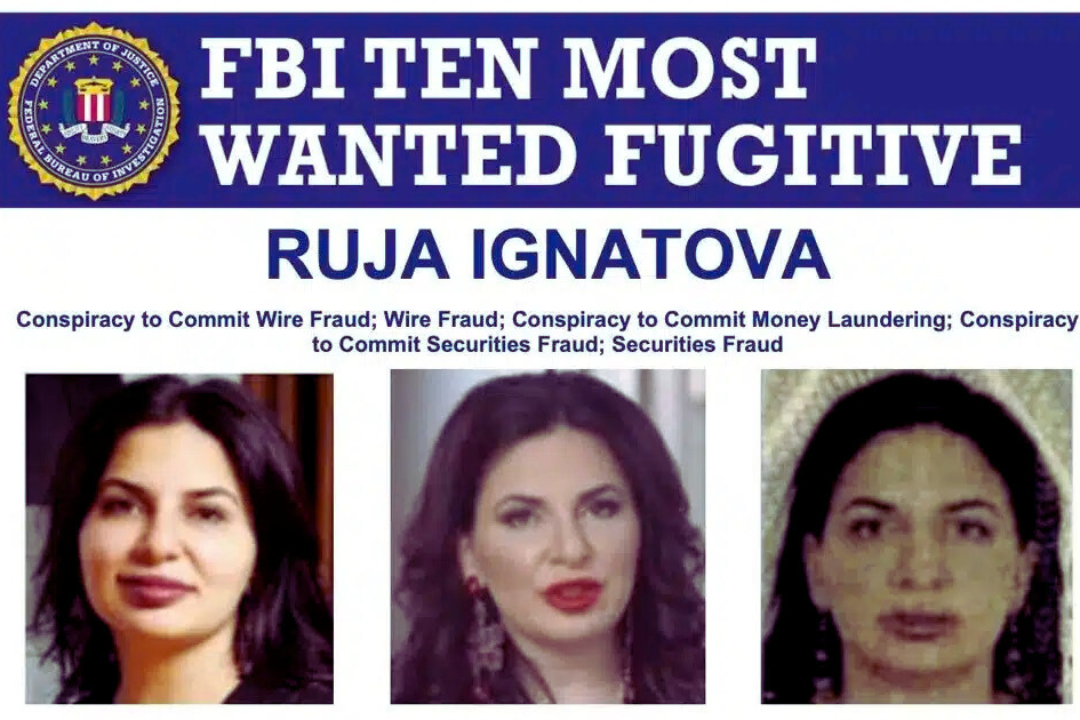U.S. State Department Announces New $5M Reward for Missing ‘Cryptoqueen’

Ruja Ignatova, the founder of OneCoin, disappeared in Athens in 2017.
The U. S. State Department is currently on the look for OneCoin founder Ruja Ignatova who is also referred to as the Cryptoqueen and has been missing since 2017 when she disappeared in Athens.
The fresh reward, which was declared on Wednesday, is provided under the Transnational Organized Crime Rewards Programme of the State Department, and increases the prior $250,000 reward that was offered by the Federal Bureau of Investigation (FBI). Ignatova was included into the FBI Most Wanted list in 2022.
Law enforcement agencies in Ignatova’s native Bulgaria also said on Wednesday that she would be charged in absentia for her participation in the crypto ponzi scheme that defrauded an estimated $4 billion from investors globally between 2014 and early 2017, when the scheme collapsed.
OneCoin worked with the help of promoters, who offered investments with the promise of receiving OneCoin tokens, although, in fact, there were no such thing as OneCoin tokens – OneCoin was not based on any blockchain, and Ignatova and her team artificially inflated its value by generating new coins automatically.
The State Department has described OneCoin as being one of the biggest scams in the world.
Apart from the charges in Bulgaria, Ignatova – a German national – has criminal charges in the United States of America, Germany and India.
Some of the people that Ignatova worked with in OneCoin have been found guilty and sentenced to prison. In the previous year, OneCoin co-founder Karl Greenwood was convicted of the crimes and was given a 20-year prison sentence and ordered to pay $300 million in forfeiture. Two of the scam project’s lawyers – Irina Dilkinska from Bulgaria and Mark Scott from the USA – were convicted this year; the former was given 4 years of imprisonment, and the latter was sentenced to 10 years.
Vanishing Act
Ignatova disappeared in the fall of 2017 after being indicted in the U. S. and was last seen on a plane from Sofia, Bulgaria to Athens.
FBI said that Ignatova might have undergone plastic surgery or might be using a German passport in the Middle East or Eastern Europe.
There are also reports of her death having been faked and Ignatova having been killed. In 2023, a media outlet from Bulgaria claimed that Ignatova was killed and cut into pieces on a yacht in the Ionian Sea in 2018 at the order of a Bulgarian drug dealer Taki which has not been confirmed.
The story of the OneCoin creator Ruja Ignatova is quite mysterious: she was last seen in Athens in 2017, and the United States State Department has raised the stakes in the search for her, having recently increased the reward for her arrest or conviction to $5 million, despite the previous reward of $250,000 and her inclusion in the FBI’s list of Most Wanted persons since 2022.
Ignatova, known as the Cryptoqueen is a Bulgarian woman who has been recently charged for her involvement in the global crypto ponzi scheme called OneCoin. This large scale operation targeted innocent investors, and from 2014 to 2017, it is believed to have defrauded investors of $4 billion.
The plan was rather smart, but it was a scam. People were sold tokens with their investments in mind, but what they did not know is that OneCoin was not on any blockchain. However, Ignatova and her cohorts changed the perceived value through the auto-generation of new coins. The State Department has called OneCoin one of the largest global frauds in history, according to the materials.
Apart from the charges in Bulgaria, Ignatova – a German citizen – has other criminal charges in the United States of America, Germany and India.
Several of the individuals that Ignatova was working with in OneCoin have been arrested and convicted and sent to jail. However, in the previous year, the co-founder of OneCoin, Karl Greenwood, was prosecuted for the said crimes, and was sentenced to 20 years’ imprisonment and required to forfeit $300 million. Two of the scam project’s attorneys were convicted this year: Irina Dilkinska from Bulgaria and Mark Scott from the United States; the former was sentenced to 4 years of imprisonment, and the latter was given 10 years.



